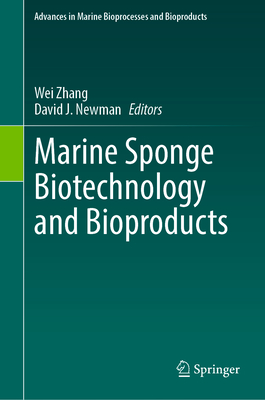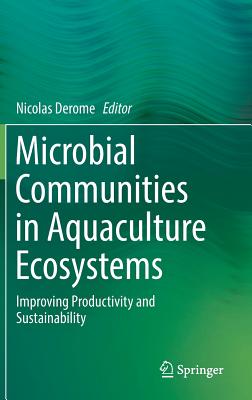商品描述
Dive into the fascinating world of marine sponges, ancient sea creatures that hold the potential to revolutionize medicine, industry, and environmental conservation. These remarkable organisms produce a vast array of powerful chemicals that show promise in treating diseases like cancer, HIV, Alzheimer's, and Parkinson's. This book explores how scientists are unlocking the mysteries of sponge biochemistry and their symbiotic relationships with bacteria to develop next-gen drugs and agricultural solutions. Beyond medicine, sponges' microscopic skeletons inspire innovations in materials science and energy storage, while their natural water-filtering abilities make them environmental superheroes, helping combat pollution and climate impacts. The text delves into the latest advances in sponge cell culture, recombinant protein production, and aquaculture, offering sustainable strategies for harnessing sponges' potential without harming the ocean. Perfect for researchers, entrepreneurs, and anyone curious about nature-inspired solutions, this book bridges science and industry, showing how the marine sponges could solve tomorrow's biggest challenges. Discover why sponges are science's next superstars and how their study contributes to human health, environmental sustainability, and economic growth.
商品描述(中文翻譯)
深入探索海綿的迷人世界,這些古老的海洋生物擁有顛覆醫學、工業和環境保護的潛力。這些卓越的生物產生了各種強效化學物質,顯示出在治療癌症、HIV、阿茲海默症和帕金森病等疾病方面的潛力。本書探討科學家如何解開海綿生物化學的奧秘及其與細菌的共生關係,以開發下一代藥物和農業解決方案。除了醫學,海綿的微觀骨架啟發了材料科學和能源儲存的創新,而它們自然的水過濾能力使它們成為環境超級英雄,幫助對抗污染和氣候影響。文本深入探討海綿細胞培養、重組蛋白質生產和水產養殖的最新進展,提供可持續的策略以利用海綿的潛力而不損害海洋。
本書非常適合研究人員、企業家以及對自然啟發解決方案感興趣的任何人,架起科學與工業的橋樑,展示海洋海綿如何解決明天最大的挑戰。發現為什麼海綿是科學界的下一個明星,以及它們的研究如何促進人類健康、環境可持續性和經濟增長。
作者簡介
Prof. Wei Zhang, a Biochemical Engineer since 1989, is a globally recognized leader with research and teaching expertise in industry and marine biotechnology. He is a pioneer and the R&D leader in driving the establishment of the Australian third-generation marine bioproducts industry. He obtained his PhD from Dalian Institute of Chemical Physics, CAS in 1994, and did his Postdocs at the University of Tokyo, Adelaide University and Cambridge University. He joined Flinders University in 1998. Since 2000, he has secured many national and international grants over A$50 million, culminating in a $270m Marine Bioproduct Cooperative Research Centre (MBCRC) grant as Bid Lead. He founded the Centre for Marine Bioproducts Development and became its inaugural Director in 2009. He has published 300+ refereed Journal papers, eight Journal special issues, and two edited books. He is an editorial member of five Journals- Marine Biotechnology, Synthetic Biology and Engineering, Marine Life Science and Technology, Biofuels and Health Engineering; and Specialty-Chief Editor for Frontiers in Marine Science (Marine Biotechnology and Bioproducts). He is the Editor of Springer-Nature Book Series "Advances in Marine Bioprocesses and Bioproducts". He has organised and chaired 30+ international conferences and sessions. He won several important awards, including the "South Australia Young Tall Poppy Science Award" in 2008, the "South Australia Science Excellence Award- Science and Industry Collaboration" in 2022, and the "Finalist of Australian Eureka Prizes for Leadership in Science and Innovation" in 2022. He is the Inaugural President of Australia-New Zealand Marine Biotechnology Society, and Chair of Marine Biotechnology Subcommittee, Australia National Marine Science Committee. He serves as the president of the Asia-Pacific Marine Biotechnology Society and is a board member of the International Marine Biotechnology Association and BioMarine. He has driven many national and international partnerships across governments, universities, industries, professional societies and communities. He has highly accomplished entrepreneurial skills to drive translational research toward industry outcomes and impacts. He was the founding Research Director and Chief Science Advisor of MBCRC, the Australian national research for industry flagship to drive innovation for the growing Australian third-generation high-value marine bioproducts industry. He is an elected Fellow of the Australian Academy of Technological Science and Engineering (FTSE) and Matthew Flinders Distinguished Professor in Industry and Marine Biotechnology at Flinders University, Australia. Dr David Newman, retired as Chief of the Natural Products Branch (NPB) in the Developmental Therapeutics Program at the National Cancer Institute in Frederick, Maryland in January 2015 having spent almost 24 years with the branch, the last 10 as Chief, and is an NIH Special Volunteer with the NPB. He started his scientific career as a lab technician in 1956 working on metabolism of animal feeds and studying part time for the Associateship of the Royal Institute of Chemistry (by examination; equivalent to a BSc II/I degree in chemistry) which was awarded in 1960, After a year as an analytical chemist at Bibby & Sons (where he had been a technician) then followed an M.Sc. in synthetic organic chemistry of pyrroles from the University of Liverpool (1963), and after some years as an industrial synthetic organic chemist at Ilford Ltd working on photoactive dyestuffs, he joined the Unit of Nitrogen Fixation at the University of London, which subsequently moved to the Universityof Sussex and received a D. Phil. in microbial chemistry from the University of Sussex (1968). He moved to the USA as a post-doctoral fellow in the Biochemistry Department at the University of Georgia from 1968-1970. In 1970 he joined SK&F as a biological chemist working mainly on anti-infective agents and in order to be able to program mainframe computers in 1977, he received an MLS in Information Science from Drexel University in Philadelphia. SK&F closed their antibiotic research program in 1985 and following work in marine and microbial discovery programs at various companies including the Head of Microbiology at SeaPharm and Lead Microbiologist at Lederle Laboratories, he joined the NCI/NPB in 1991 with responsibilities for marine and microbial collection programs and their development as antitumor agents. Following Gordon Cragg's retirement from the position of chief in Dec 2004, he was acting chief until appointed chief of the NPB in 2006.
作者簡介(中文翻譯)
張偉教授自1989年以來是一位生化工程師,擁有全球公認的行業和海洋生物技術研究及教學專長。他是推動澳大利亞第三代海洋生物產品產業建立的先驅及研發領導者。他於1994年獲得中國科學院大連化學物理研究所的博士學位,並在東京大學、阿德萊德大學和劍橋大學進行博士後研究。1998年,他加入弗林德斯大學。自2000年以來,他獲得了超過5000萬澳元的多項國內和國際資助,最終作為投標負責人獲得了2.7億澳元的海洋生物產品合作研究中心(MBCRC)資助。他於2009年創立了海洋生物產品開發中心並成為首任主任。他已發表300多篇經過同行評審的期刊論文、八期期刊特刊和兩本編輯書籍。他是五本期刊的編輯成員,包括《海洋生物技術》、《合成生物學與工程》、《海洋生命科學與技術》、《生物燃料與健康工程》,以及《前沿海洋科學》(海洋生物技術與生物產品)的專題主編。他是施普林格-自然出版社的《海洋生物過程與生物產品進展》書系的編輯。他組織並主持了30多場國際會議和專題討論會。他獲得了幾個重要獎項,包括2008年的「南澳大利亞青年高挑罌粟科學獎」、2022年的「南澳大利亞科學卓越獎-科學與產業合作」以及2022年的「澳大利亞尤里卡獎科學與創新領導獎決賽入圍者」。他是澳大利亞-新西蘭海洋生物技術學會的首任會長,並擔任澳大利亞國家海洋科學委員會海洋生物技術小組委員會的主席。他還擔任亞太海洋生物技術學會的會長,並是國際海洋生物技術協會和BioMarine的董事會成員。他推動了許多國內外的合作夥伴關係,涵蓋政府、大學、行業、專業協會和社區。他擁有卓越的創業技能,能夠推動轉化研究以實現產業成果和影響。他是MBCRC的創始研究主任和首席科學顧問,該機構是澳大利亞國家產業研究的旗艦項目,旨在推動澳大利亞第三代高價值海洋生物產品產業的創新。 他是澳大利亞技術科學與工程學院的當選院士(FTSE),並擔任弗林德斯大學的馬修·弗林德斯工業與海洋生物技術傑出教授。 大衛·紐曼博士於2015年1月退休,曾擔任馬里蘭州弗雷德里克國家癌症研究所發展療法計劃的天然產品部門(NPB)主任,並在該部門工作了近24年,最後10年擔任主任,並作為NPB的NIH特別志願者。他於1956年開始科學職業生涯,擔任實驗室技術員,研究動物飼料的代謝,並兼職學習皇家化學學會的副學位(通過考試;相當於化學的BSc II/I學位),該學位於1960年頒發。在Bibby & Sons擔任分析化學家一年後,他獲得了利物浦大學的合成有機化學碩士學位(1963),並在Ilford Ltd擔任工業合成有機化學家,專注於光活性染料的研究,隨後加入倫敦大學的氮固定單位,該單位後來移至薩塞克斯大學,並於1968年獲得薩塞克斯大學的微生物化學博士學位。他於1968年至1970年在喬治亞大學的生物化學系擔任博士後研究員。
1970年,他加入SK&F擔任生物化學家,主要研究抗感染劑,並於1977年獲得德雷克塞爾大學的信息科學碩士學位,以便能夠編程大型主機。SK&F於1985年關閉了其抗生素研究計劃,隨後在多家公司從事海洋和微生物發現計劃的工作,包括擔任SeaPharm的微生物學部門負責人和Lederle Laboratories的首席微生物學家,1991年加入NCI/NPB,負責海洋和微生物收集計劃及其作為抗腫瘤劑的開發。2004年12月,戈登·克拉格退休後,他擔任代理主任,直到2006年被任命為NPB主任。











